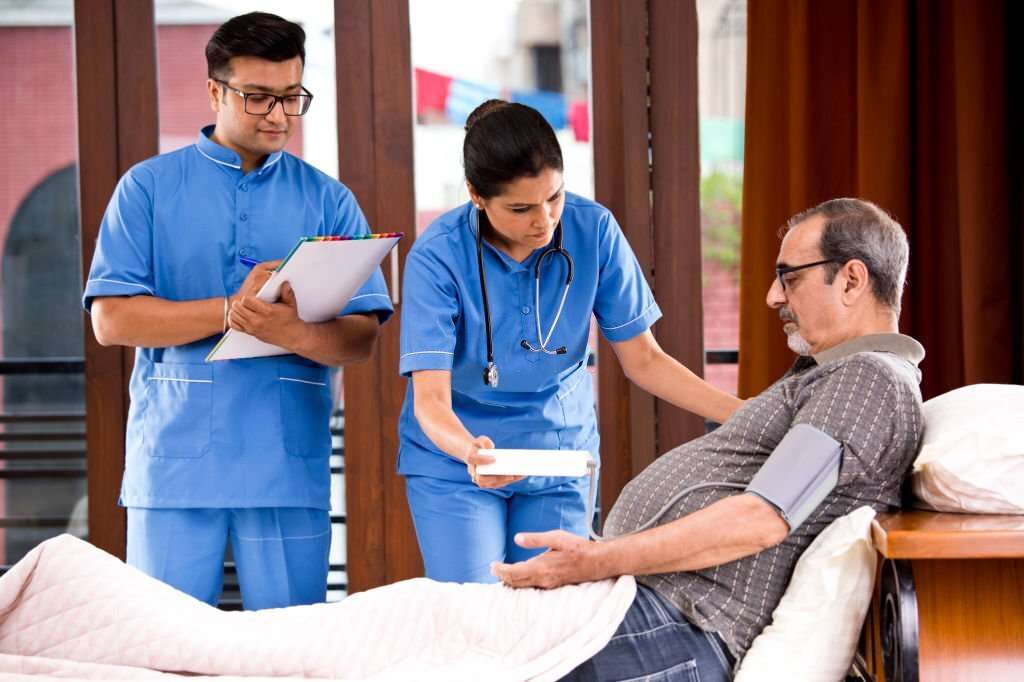Important things every senior caregiver needs to remember

Senior citizens require assistance with many everyday activities, including bathing, doing laundry, shopping, cooking, eating, and more. However, depending on their health status, they also need companionship, support, and special care. As we become older, keeping up with daily routines and general hygiene becomes more and more challenging. This blog post will help you better understand various aspects of elder care and how to make your loved ones feel more at ease, protected, and happy during the transition. The following are a few things that every senior caretaker should keep in mind:
Bathing and Personal Hygiene
Bathing and hygiene are two of the most difficult aspects of senior care. They are not only physically demanding but also emotionally challenging, as the elderly are sometimes uncomfortable when a stranger must bathe them. Depending on their medical condition, individuals may not require a daily shower. Actually, most individuals only require a complete bath two to three times each week and only need a sponge bath once or twice a day. Make sure to choose the appropriate timing and type of bath for their needs. Keep a towel or clothing item ready for them to put on as soon as they leave the bathtub or shower. If you’re giving a bed bath, make sure to only uncover the part that needs cleaning.
Skin care, oral care, hair care, and shaving are all components of general personal hygiene. It is critical to keep their skin clean and dry because most seniors, especially those with physical limitations, are susceptible to bedsores and skin infections. When it comes to bathing, the most serious safety concern is the possibility of falling. Every year, about one-third of seniors over 65 experience falls. So, make sure that grab bars are provided, that the floor is not damp or slippery, that the bathroom is warm, and that the water temperature is suitable. Allow the elderly to keep as much of their self-care as possible. It will give them a feeling of independence. Allow them to wash easily accessible areas such as their legs, hands, and feet when taking a bath. Be patient at all times. You might need to constantly explain why and what you are doing when caring for older people, especially those with dementia or Alzheimer’s. So don’t be stressed out.
No matter how challenging the situation may appear to be, try to maintain a positive attitude.
Safety Supervision
Accidental fall injuries become more common as people get older. Slipping and falling is often fatal due to bone density loss, deterioration of neurological coordination, and poor eyesight. The simplest approach to avoiding slips and falls is to keep your surroundings clean and organised. Don’t leave anything on the floor, in the hallway, or on the stairs. Using grab bars and handrails makes it easier for the elderly to walk around the house. Install handrails on stairways, corridors, hallways, and even bedroom walls, as well as grab bars in the bathroom and toilet. You should also think about replacing entrance steps with a ramp, especially if the elderly are in wheelchairs. Since ageing impairs vision, inadequate lighting will almost certainly lead to disaster. Make sure all areas of the house, particularly the stairwells and narrow hallways, have enough lighting.
Assistance with Mobility
An aged person’s sense of independence and confidence depends heavily on their ability to move around. Typically, ambulating entails assisting the elderly in getting into and out of bed, as well as walking or moving around in a wheelchair. However, you must first acquire the necessary transfer skills. When transferring the senior from bed to the wheelchair, place the chair close to the bed so that the elderly person’s stronger side is closest to the chair. Make sure the brakes are locked. Check that the elderly person is comfortable before moving them to a wheelchair. When assisting a senior in walking, keep yourself on their weaker side. You can also assist the elderly by using a gait belt, walker, or walking cane. Encourage the person to become as independent as they can. Don’t forget to wear appropriate footwear. You might sometimes need to help an elderly person up after a fall. If there is no obvious injury, you can assist them in standing. However, in the event of an injury, seek medical attention first and do not attempt to move the elderly on your own.
Medication Reminder
One of the key responsibilities of a personal caregiver is medication management. Most elderly people over the age of 65 require a variety of medications on a regular basis. However, cognitive impairment and sensory degradation can make it nearly impossible for the elderly to keep up with the prescribed medication schedule. Make sure the elderly person always takes their medication as directed by their doctor. To keep prescriptions organised, use a pill box with labels for each day of the week. As a personal caregiver, you will almost certainly be expected to accompany the senior to planned doctor’s appointments. You should bring all of the elderly person’s medications and supplements with you to have them reviewed by the physician.
Thus, when it comes to senior care, you must be compassionate about the situation. Senior care entails much more than simply assistance with personal hygiene and nutrition. Hopefully, these tips will help you in providing complete care to assist them in living a healthier and happier life.

Inhouse Medicare is the most trusted and leading provider of home healthcare services to people of all ages in Coimbatore. We provide timely, high-quality medical care as well as diagnostic services right at your front door.
Quick Links
Services
Doctor Consultation | Skilled Nursing Facilities | Nursing services | Trained Attendant Services | Elder Care Services | Palliative Care Services | End of Life Care | Hospice Care | Stroke Rehabilitation Care | Physiotherapy Services | Laboratory Services | Pharmacy Services | New Born Care | Elder Assistant Services | Geriatric Care Services | Rental Services |
Contact Us
Address
Inhouse Medicare
123, Kalidas Road, Ram Nagar, Coimbatore, Tamil Nadu, India, 641009.



